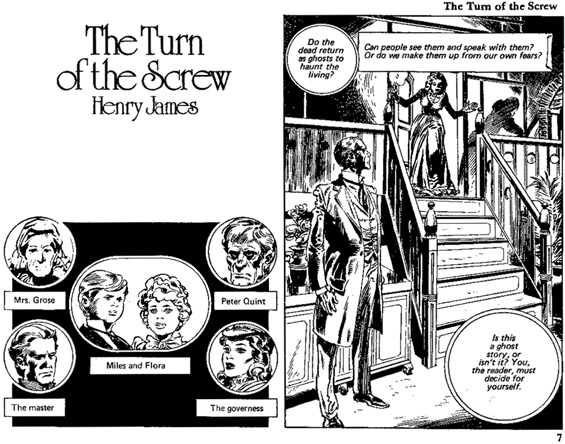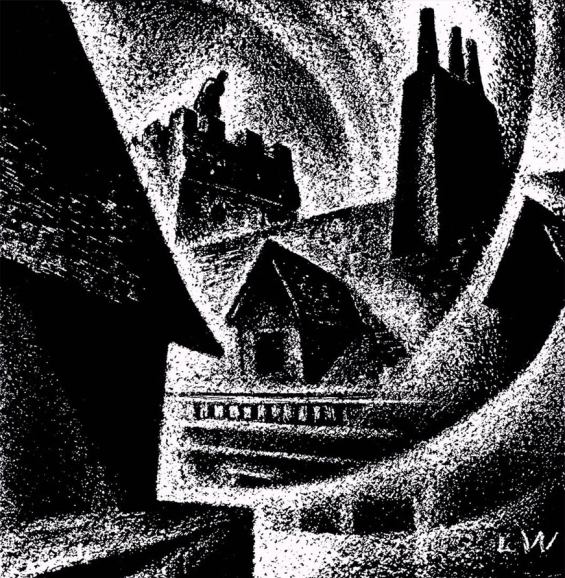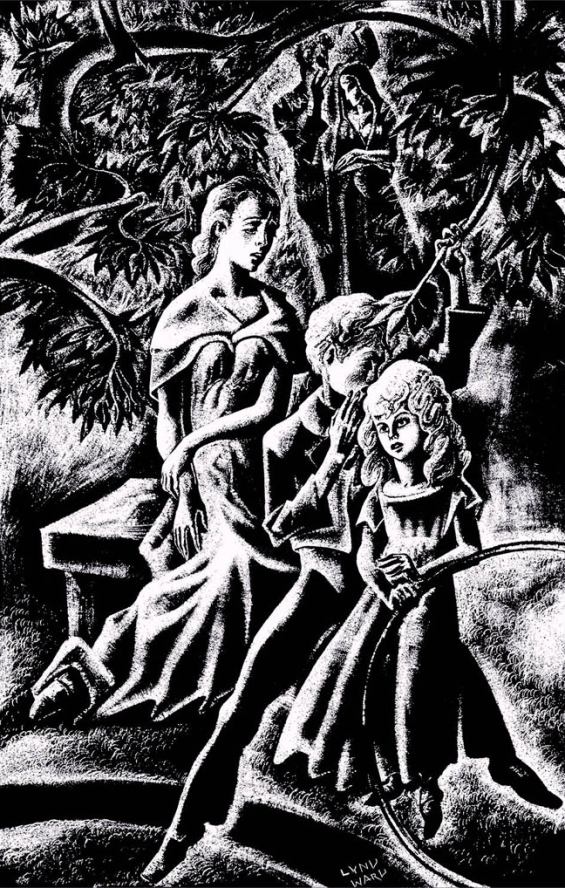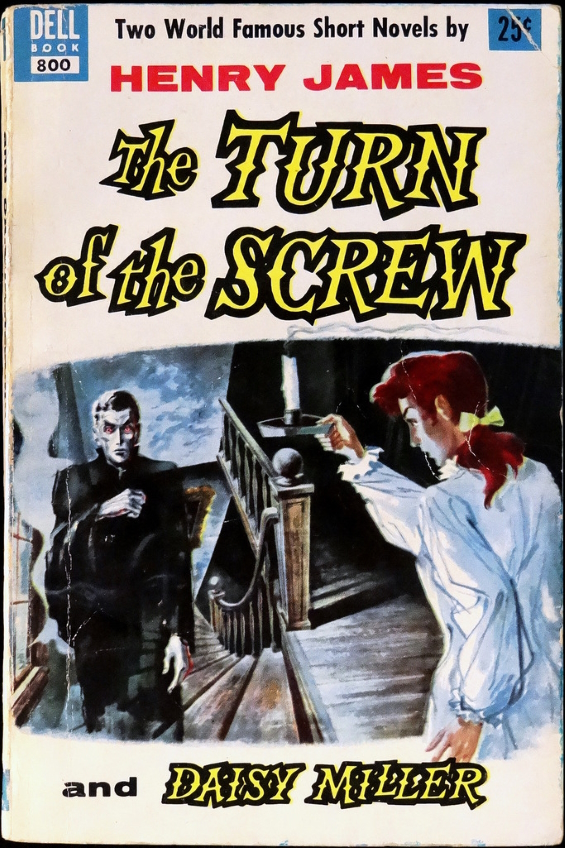
 The SFFaudio Podcast #609 – Jesse, Scott Danielson, Evan Lampe, Maissa Bessada, and Will Emmons talk about Anarchaos by Donald E. Westlake
The SFFaudio Podcast #609 – Jesse, Scott Danielson, Evan Lampe, Maissa Bessada, and Will Emmons talk about Anarchaos by Donald E. Westlake
Talked about on today’s show:
Curt Clark, Jesse’s favourite writer?, talkin bout Westlake, Lawrence Block, 1967 ACE paperback, less than a finger thick, Paul’s reaction, the audiobook is much abridged, that’s what they did back then, Reader’s Digest Condensed Books, the Columbia House, the Science Fiction Book Club, Scott’s origins (YouTube), night and day, all the anarchist stuff is not in the audiobook, the CBR, how vast a difference, about 70% of the book is cut out, the history, an experiment in anarchism, this is really bad anarchism, into two cassettes, Tomorrow’s Crimes by Donald E. Westlake, when Westlake quit science fiction, it could have been half of an Ace double, a super-interesting guy, Chuck Wendig, Under An English Heaven, a weird writer, peripheral writings, characterization and crime, Xero, I’m not sitting around bragging, no place for it?, I cannot sell good science fiction, John W. Campbell, gatekeepers, science fiction’s lost is crime’s gain, Analog, a side bit character, $450, the economics of writing science ficton, a go fund me, one of the most popular science fiction writers, a kickstarter to make ends meet, how good this book is, subjective reactions, rafts of stuff, the anarchy and the philosophical, the butchery is surgical, a very good abridgement, Stefan Rudnicki, decisions being made, only a few characters, this guy just gave up, rewriting the book, Westlake doesn’t waste words, parsimoniously, Westlake’s trademark: the movement of hands, the whole tell, Richard Stark, a fast writer, Man Of Action, December 1960, supplementary homework, Or Give Me Death, Patrick Henry, 270 years old, an editor getting pitched, in 1823 he almost died, November of 1954, a highly political story, it makes a point, Who are the heirs of Patrick Henry?, Robert A. Heinlein, a libertarian, the founding fathers, it is a good book, he’s fudging a little bit, another version of The Call Of The Wild, he think he’s the toughest dog around, over the horizon, the uninhabitable zone, John Thornton, men are dangerous and dogs are subservient to men, the king of the slaves, Buck doesn’t talk or think in words, Buck did not read the newspapers, the house slave, the top dog, his true nature, the man is a man, Rolf Malone, he basically murders a dude, so shocking, our main character is an evil murderer, his real reason for coming to the planet, the society, he kills dozens and dozens of people, he wants to kill the planet, Lybia, would people be like this?, Newton’s first law, Malone was the external force, that one strangling hand, Cloak Of Anarchy by Larry Niven, the origins, Mikhail Bakunin, an insurrectionary anarchist, Peter Kropotkin, how cooperative systems can exist, post-scarcity, the conquest of bread, an anarchist utopia, corporations came, anarcho-capitalism, slavery without a state, marriage without states, a meta-element, a whole series of novels, Cockaigne, a prison planet where the natives cant leave, Aldous Huxley’s Brave New World‘s reservation, the U.C. is interfering with the running, the immigration official, a very unwise priest, Dracula, Jonathan Harker, The Woman In Black, repossess a computer, being sent to be killed, these are my people, the corporations run this planet, an economic shit zone, the offworlders moved in, in the hands of profit-seekers, anarchism sounds really great its gonna get co-opted by corporations, no government that can hold the corporations accountable, pirates eating into their slavery business, the polities, guns, who is a slave in a west African society, state making taking place, more laws that lead to more people being criminals to make them slaves, definitely the political, extracting the resources from Anarchaos, Martha Wells’ Murderbot Diaries, get the pronouns right, a big multi-national corporation and a nation, a body, it has arms, if this was a completely cut-off planet, its supposed to be a failed utopia, how Westlake cheats, the star is Hell, the names of the cities, Ulich and Nigh, Cockaigne is middle ages fantasy of young monks, Valhalla, afterlife places, tidally locked, the temperature, 29 Celsius, how the ecosystem can work, The City In The Middle Of The Night by Charlie Jane Anders, a drug that can take away his responsibility, we can trust what he’s saying or what he’s doing, the femme fatale, time itself, usual rituals, Will should have some thoughts about this book, the hard science is not what this novel is about, an anthropological big think, soft science, Vietnam after they win the war, the Chinese path, the worker state welcomed investment back in, how can this little socialist utopia exist?, purposely isolated, Democratic People’s Republic of Korea (North Korea), self-reliance, The Green Odyssey by Philip Jose Farmer, how respectful of physical space, Texas with no rangers, a comedy, the products of the authors, a long time ago this planet had some sort of galactic relationship with the other planets, Atlanta, an airport hub, a straight-up planetary romance, not a fun adventure planet with cool creatures, the hovels, this tradition, Kirinyaga by Mike Resnick, a fix-up novel, an asteroid terraformed into ancient Kenya, the mundumugu witch-doctor, the Transmetropolitan reservations, the Coventry reservation, the Westlake Review, Westlake was interested in SF, Nackles, anti-Santa Claus, Xmas, it’s not me it’s you, what this book is an indicator of, we withdraw our society from you, society and individual and crime, how Jesse wants to frame this story, John Savage, the Director of Hatcheries and Conditioning, a kind of similar relationship, that savage lifestyle, she’s non-functional, nice food, a soft bed, new clothes, a shower, to be drugged up and not be, might makes right, colours in this book, the red light of Hell, a single name, Ice or Sledge, a Disneyland Chenzen special economic zone, an Alaska, a free extraction zone, cesspools and tailings, where the animals went, no mention of race, the state of nature argument, a raw canvas, an anarcho-syndicalist utopia for about 15 minutes, big offshore corporations, what anarchism is, in what circumstances could it work, that premise, the post-apocalyptic works, The Road by Cormac McCarthy, The Walking Dead, big walls, in a context, a rich network with other groups, a different kind of slavery, the kind of slavery that parents have to children or to family, the relationship between marriage and slavery, the Roman Empire, Debt: The First 5,000 Years by David Graeber, go to the neighbouring community and get some girls, the caveman cartoon, the carrying over the threshold, the collar around the neck kind of slavery, women can be slaves but not men, he’s a bad dude, go wherever you want, exporting troublemakers, exporting their worst corporations, Jerry Pournelle’s CoDominium books, hello Australia, the west, Evan kinda likes this model, where all the wild ones are, The Many-Colored Land by Julian May, exporting of excess population, the Greeks were doing it with their colonies, an alternative to prisons, Siberia!, an open-air prison, Escape From New York, how shocked were you all when Malone gets his hand cut-off early in the book?, The Dark Tower, unless it gets infected…, he gets his brother’s college ring back, the ring finger of his left hand, some guy chewing on his hand, the limited contact we have with the natives, youre my slave now (cuz I found you in a ditch), you’re my brother or you’re my son, their aren’t teams and syndicates other than corporations, who is keeping the stuff like that?, the slum-dwellers from being unionized, doubly abridged, so heavy and dark, slightly higher gravity, the gravity thing, a subversion of a traditional planetary romance, subversion, confederate veteran, John Carter, weighted down morose lethargic, mentally and physically, the Colonel’s secretary, A Princess Of Anarchaos, the planet killed Gar, and two women, his mind flex, give me a planetary romance exploring an idea, a sixties slim paperback, full of SF ideas, Humans by Donald E. Westlake, angels are real, a very experimental writer, Smoke by Donald E. Westlake, The Invisible Man by H.G. Wells, crime books, very philosophical, those crime books can be very philosophical, what makes crime bad?, killing’s just something you do, fearful for my own life, an imposition on their liberty, a pure goal oriented…, Parker is deluding himself, he wants to kill vs. he wants the action, why we’re reading it, find his brother’s killer, he didn’t have the stomach for it, feeling sorry for himself, now I have to kill the whole planet, essentially a villain, there is no hero, Jesse loves the ending, eighteen hours and twenty three minutes, oh shit, kill a whole lot of people, Morogeth, revenge on the actual people who killed his brother, the heart of the monetary system, rot in its own juices, absurd anarchy with some protective colony, how the story started, the boredom of travel by shuttle, Rolf I’m going to have a second chance, the only real relationship he has, the only person he respected, the only person he admired, a reverse inversion of this, from the other side, Fight Club, another political book, man’s relationship to himself, how’m I spossed to live now in this modern world with Ikeas, Fight Club 2, the comic book sequel, tear it all down, Phail and Gar, met across a loaded gun, Phail -> veil?, the names are weird, the veil of rule of law, pull the veil away, the naked relationship, the look in Colonel Whistler’s eyes, Anarchaos was a cancer, thus the suitcases, that promise, voyages to seven planets, the other planets in the UC system, Jack Vance, The Moon Moth, a planet full of people wearing masks all the time, The Lego Movie (2014), Cloud Cuckoo Land, framings and levels, interpreting what’s going on, a popular genre in the middle ages, young monks, writing poems, satirizing their lives,Land of Cokaygne
There is another abbey nearby,
a great nunnery in fact,
up a river of sweet milk,
where there is great plenty of silk.
When the summer’s day is hot,
the young nuns take a boat,
and go forth on that river
rowing with oars and steering.
When they are far from the abbey,
they undress to play,
and jump into the water
and swim secretly.
The young monks who see them
get ready and start out
and come to the nuns immediately,
and each monk takes one for himself
and carries his prey away quickly
to the great grey abbey,
and teaches the nuns a prayer
with their legs up and down in the air
The monk that can be a good stallion
and knows where to put his hood
he can easily have
twelve wives each year.
the power of translation, the power of writing, the power of reading, goddamn it I’m a monk, the nuns in that nearby abbey are quite sexy, it rains cheese from the sky, a comedy reaction to the difficulty, the place where they took his weapons away, richness that went into this, he loved the process of creation, Planet Of Adventure by Jack Vance.
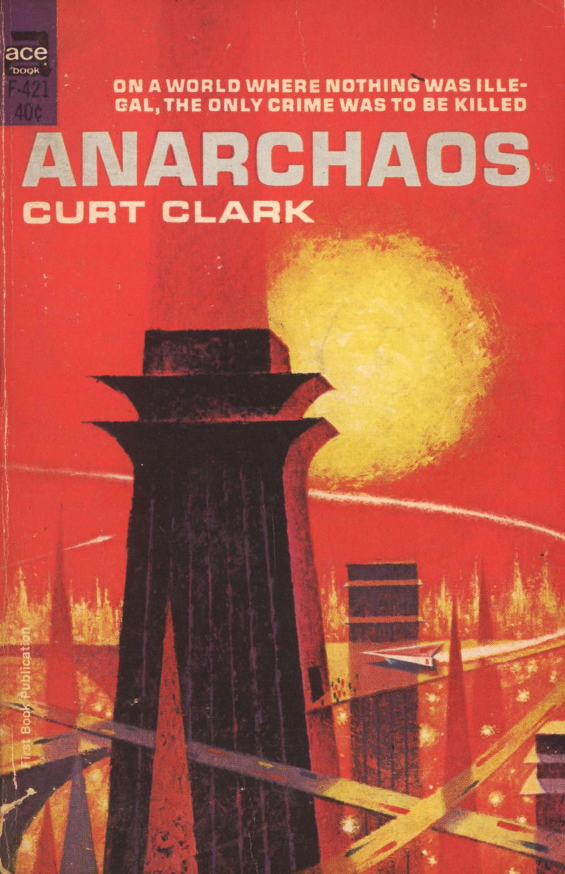
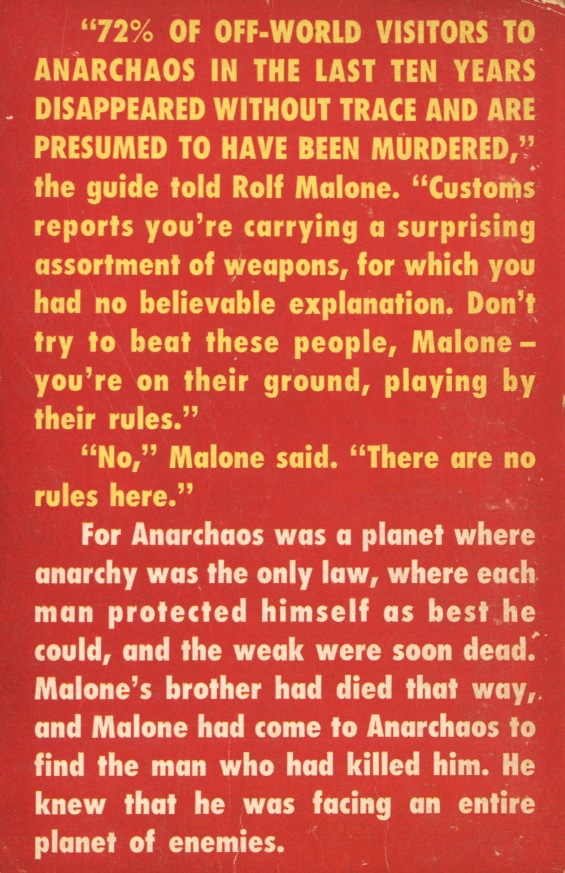
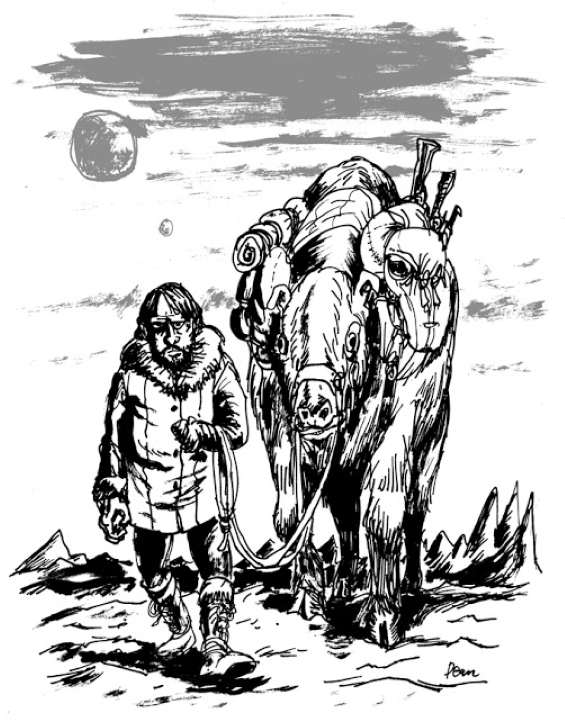
Posted by Jesse WillisBecome a Patron!

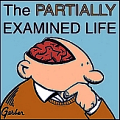


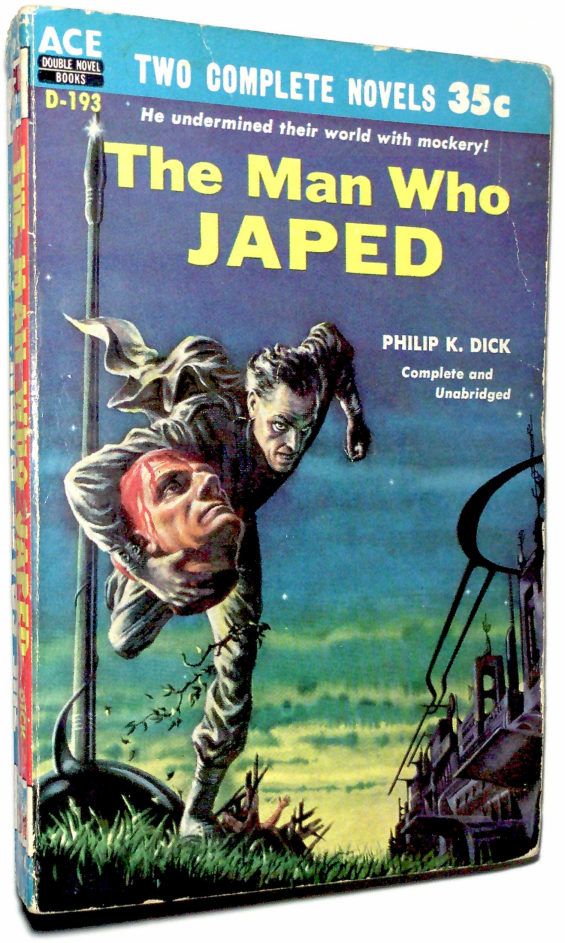

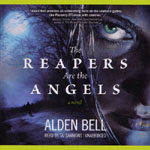
 The Reapers Are The Angels
The Reapers Are The Angels